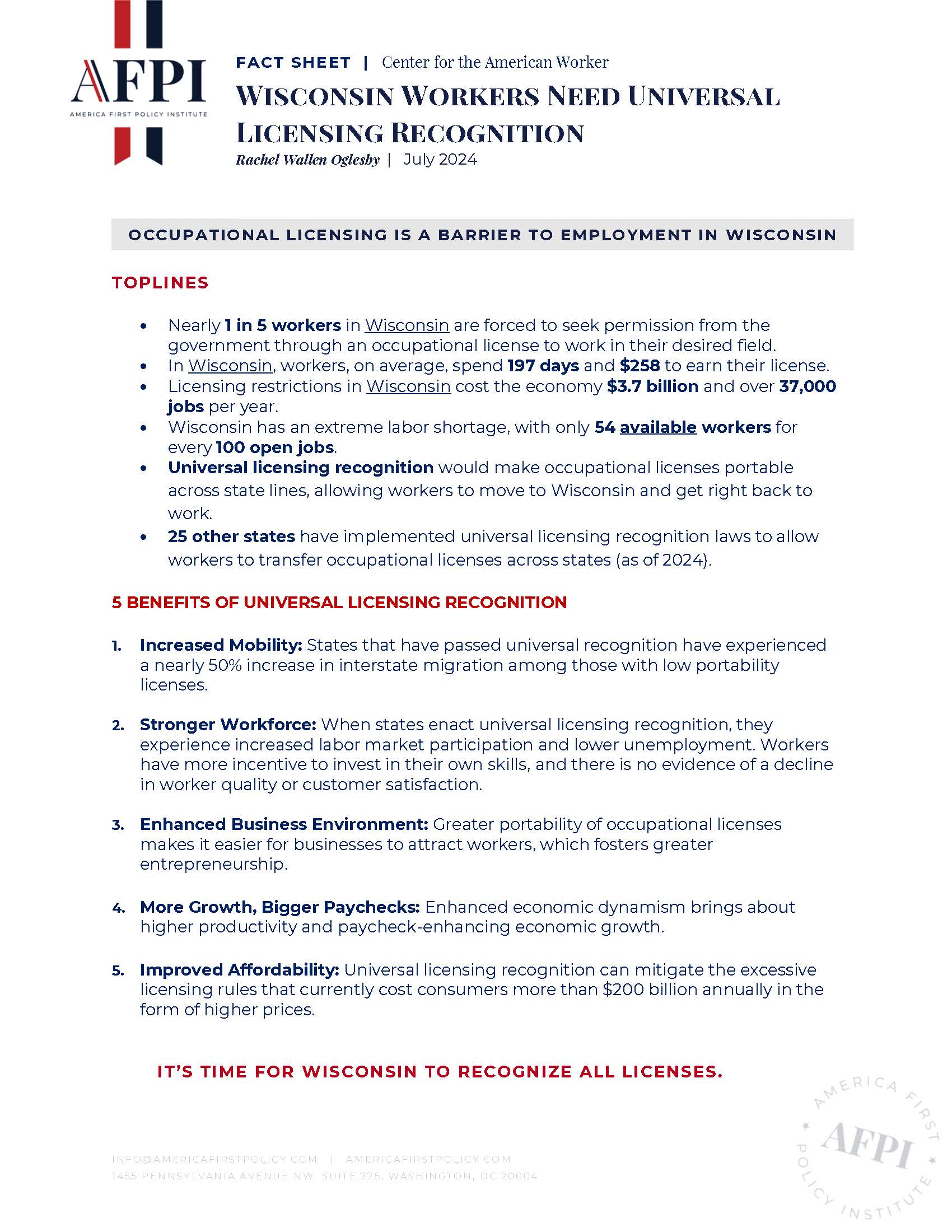Rachel Wallen Oglesby
July 1, 2024
Wisconsin Workers Need Universal Licensing Recognition
Key Takeaways
Nearly 1 in 5 workers in Wisconsin are forced to seek permission from the government through an occupational license to work in their desired field.
In Wisconsin, workers, on average, spend 197 days and $258 to earn their license.
Licensing restrictions in Wisconsin cost the economy $3.7 billion and over 37,000 jobs per year.
Wisconsin has an extreme labor shortage, with only 54 available workers for every 100 open jobs.
Universal licensing recognition would make occupational licenses portable across state lines, allowing workers to move to Wisconsin and get right back to work.
25 other states have implemented universal licensing recognition laws to allow workers to transfer occupational licenses across states (as of 2024).
OCCUPATIONAL LICENSING IS A BARRIER TO EMPLOYMENT IN WISCONSIN
5 BENEFITS OF UNIVERSAL LICENSING RECOGNITION
- Increased Mobility: States that have passed universal recognition have experienced a nearly 50% increase in interstate migration among those with low portability licenses.
- Stronger Workforce: When states enact universal licensing recognition, they experience increased labor market participation and lower unemployment. Workers have more incentive to invest in their own skills, and there is no evidence of a decline in worker quality or customer satisfaction.
- Enhanced Business Environment: Greater portability of occupational licenses makes it easier for businesses to attract workers, which fosters greater entrepreneurship.
- More Growth, Bigger Paychecks: Enhanced economic dynamism brings about higher productivity and paycheck-enhancing economic growth.
- Improved Affordability: Universal licensing recognition can mitigate the excessive licensing rules that currently cost consumers more than $200 billion annually in the form of higher prices.
